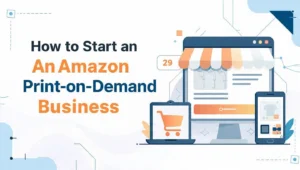The labour and goods markets of 2024 had barely recovered from the shock of the pandemic when Bangood announced it would set out to Build eCommerce Website. Whether you are a beginner or a seasoned merchant, that choice is critical to succeeding in online business. There are many good platforms like Shopify out these days that suit different types of business.
The big platforms each have its unique design features. That reason doesn’t hold up however when it comes to the ten most recommendable platforms to Build an eCommerce Website of this year 2024.
Best Platform to Build eCommerce Website
1. Shopify

Started in 2006 by Tobias Lütke, Daniel Weinand and Scott Lake, Shopify has developed into one of the most popular and powerful e-commerce tools throughout the world, growing over 1 million businesses. Grow your business, transform it with Shopify’s affordable, powerful and easy-to-use ecommerce software.
Key Components of Shopify
Online Store Builder
Shopify’s powerful website builder helps you build a professional online store without the need for programming knowledge.
Hosting and Security
Shopify is in charge of web hosting and security for its users. This means that shop owners don’t have to concern themselves about server maintenance or uptime, the protection of their data, or providing SSL certificates. In addition the firm ensures that any store using its facilities is compliant with PCI security standards.
Payment Processing
Shopify supports over 100 payment gateways, including Shopify Payments (the company’s own gateway), PayPal and Stripe to name just a few. With this variety merchants are able to offer their customers multiple payment possibilities in commerce shipping, together at better times out-of guidelines they may have otherwise encountered on account of frustration during checkout which leads not only improved product satisfaction but also rises conversion rates conversions.
Inventory Management
Including inventory management tools, where users can manage the number of products they have in stock, different varieties for each of those products and online orders for quick cash. And all this from one single interface.
Marketing and SEO Tools
Shopify offers a whole collection of tools for marketing. Businesses can attract and maintain customers with everything from SEO features through e-mail marketing and social media integration right down to discount codes as well as detailed analysis that both tracks performance but also optimises marketing strategies.
App Ecosystem
One of Shopify ‘s main strengths is its extensive plugin store where users can choose from thousands of apps to add new features or functionalities to their shop. These applications span all domains such as sales, shipping, social media and customer service, making it possible for users to tailor-make stores based on their needs.
Benefits of Using Shopify
- Ease of Use
Shopify’s intuitive user interface is designed so that anyone can follow instructions as well as build and design their own online store.
- Scalability
Shopify is suitable for businesses of all sizes. For starters, you need a small business or the money to avoid the power surges that big businesses are known for.
- 24/7 Customer Support
Shopify offers customer support that runs 24 hours a day, 7 days a week. You can either chat with them via the live talk system or send an email, which will be answered personally by a member of staff.
- Mobile-Friendly
In an age where mobile commerce is becoming increasingly important, all templates on Shopify are designed in a way that is mobile-responsible.
Pricing
Plans start at $29 per month, with higher tiers offering more advanced features.
2. WooCommerce

WooCommerce, an open-source ecommerce plugin for WordPress, can be adapted in almost any configuration. PayPal, for example, can be incorporated as a payment gateway through WooCommerce’s simple interface functions. With very little experience necessary, it’s well within reach of most people to start their own online store using WordPress and WooCommerce.
When you build a shop with WordPress plus WooCommerce, it gives far more flexibility and power than traditional solutions. The data is absolutely not part of some other company’s rigid system. What’s more, building concurrent flows that smoothly coexist: having your complete website on a given host while running transaction settlement and online sales with external payment services all at once!
Key Components of WooCommerce
Customization
WooCommerce’s assets come at a price flexibility.It is open source, and the code is under the developers’ full control, meaning that store could meet any specific needs they like. Also, WooCommerce includes a range of themes and plugins capable of fundamentally altering the appearance and functions of your store.
Integration
Because WooCommerce integrates seamlessly with WordPress there will be no learning curve for WordPress users who are taking up e-commerce. All site management is consolidated on one familiar interface when this integration is complete.
Scalability
WooCommerce is highly scalable making it fit for businesses of all sizes. Whether you are a small local shop or a large enterprise complete with many product lines, retail sizes and so forth Woocommerce can handle this.
Community Support
WooCommerce benefits from a community that’s rich with users and developers, which provides valuable documentation, tools of the trade and solutions to pretty much all problems. The community also offers extensive documentation, forums and tutorials in order to make it even easier to solve any problems you might come across. Furthermore, many third-party developers create themes and plugins specifically for WooCommerce whatever it is, your options any Can be infinite.
Benefits of Using WooCommerce
- Flexibility: Shows shop merchants complete control over the design and functionality of their online stores.
- Cost-Effective: The principal plugin is free; but there are some extra paid extensions that offer reasonable prices for every pocket.
- SEO-Friendly: Based on WordPress, the most powerful SEO platform in the world.
- Large Community: There’s plenty of help available from both the community and developers.
- Scalability: Capable of dealing with wood-immaterial goods of every description.
Pricing
Free to use, but additional costs for hosting, themes, and extensions.
3. BigCommerce

BigCommerce is a major cloud-based e-commerce platform that lets businesses of any size build, manage, and expand their Web stores. With its powerful range of features and flexible nature, BigCommerce is designed specifically for companies looking to succeed and grow online. It provides solutions suitable for small businesses, mid-market companies, huge concerns, etc. Serving the needs of many industries at once it offers a wide range of services.
Key Components of BigCommerce
Comprehensive Built-In Features
BigCommerce already delivers advanced built in features that reduce the need for third-party applications and accessories, this not only where This comprehensive list encompasses all the way from production, management to SEO optimization tools, you easily handle marketing and analytics as a one-stop shop out of the box.
Scalability
BigCommerce is designed to grow together with businesses, offering scalable solutions that can accommodate higher website traffic, more transactions and increased product catalogues. All this makes it an excellent choice for business minded towards long-term profitability
Multi-Channel Selling
BigCommerce makes multi-channel selling easy to use. Longer need to do the laborious typing of one product list for each channel. That is because just copy & paste across two dozen different media and smash in typos the A feature, can expand your reach.
Customization
BigCommerce allows you to completely customize your online store to match the identity of your brand. It provides a variety of themes that you can customize yourself, as well as a complete application-programming interface (API) that makes deeper customizations and integrations into other business systems possible.
SEO and Marketing Tools
BigCommerce provides advanced SEO tools to improve your shop’s ranking in search engine results. It also incorporates marketing amenities like discount codes and gift certificates, along with email marketing integrations such as autoresponders (reducing your workload) and dormant account detection (helping you attract a strong base of repeat customers).
Benefits of Using BigCommerce
- Storefront Design
Makes customizable, responsive templates and advanced design capabilities possible using HTML, CSS, and JavaScript.
- Product Management
A user-friendly system for adding, organizing, and managing product catalogues, with features like bulk import/export and inventory tracking.
- Payment Processing
Supports various payment gateways, including PayPal, Stripe, Square and Apple Pay, for greater customer convenience.
- Shipping and Fulfillment
It can provide real-time quotes on shipping, label printing and integration with status from major carriers for easier fulfillment.
- Marketing and SEO
Packed with all the SEO tools you need, email marketing and social media integration are ideal for promoting your shop.
- Analytics and Reporting
Mighty tools for tracking sales, customer behavior and website traffic let you make decisions based on evidence.
Pricing
Plans start at $29.95 per month, with a 15-day free trial available.
4. Wix eCommerce

Wix member hourssection is an extension for small businesses from the so popular site builder Wix. Comfortably the interface, drag and drop our friend, from where Wix member hourssport is not difficult to use by any means; it also nicely bring out original design. For small or medium online retailers just starting market operations on the internet commercially without a lot of investment costs, Wix member hours is the best choice as it provides the entire path to configure an online store without having big financial pressure.
There are lots of specialized tools available from Wix. It offers the most complete range of functions for an e-commerce business, so that you can get operating in your own way now on it’s easy-to-interface that’s equally convenient and beautiful.
Key Components of Wix eCommerce
Ease of Use
Its Wix eCommerce, with its user-friendly designs, now enables every one who hasn’t the first idea of image and text making to set up shop online. A drag-and-drop builder such as Wix can help you set up an online retail shop quickly and easily – at least, one that looks good without requiring any computer programming knowledge.
Beautiful Templates
Wix offers a huge range of professionally designed and customizable templates for ecommerce. These templates are mobile-responsive, so your store will look great regardless of the device that pulls up its Home page. With such design flexibility as this system allows, you can make just the kind of online storefront that suits both your needs and brand image.
Comprehensive Store Management
With Wix eCommerce, you have tools for inventory management, order tracking and customer relationship management (CRM). These features simplify the office aspects of running an online business and free you up to concentrate more fully on growth and customer engagement.
Built-In SEO and Marketing Tools
To help traffic itself and increase sales, Wix eCommerce includes a whole set of integrated SEO and marketing tools. From making your site search-engine friendly to email marketing campaigns, Wix provides all the wherewithal you need to do a good job of promoting your shop.
Integrated Payment Solutions
Wix eCommerce accepts a range of payment methods, including credit cards, PayPal, offline payment gateways. This flexibility is a real bonus when it comes time to check from your site: securely, easily and without having to conform with any strict payment rules whatsoever.
Benefits of Using Wix eCommerce
- Store Builder
The core of Wix eCommerce is its intuitive store builder that enables you to create an online store with an easy-to-use drag and drop editor.
- Product Management
Wix provides powerful tools for managing your product library. You can add lengthy product descriptions, multiple images, and variations (such as size and color). Features for recording inventory assist your business in keeping stock levels accurate and tell you when to reorder goods before they run short.
- Shopping Cart and Checkout
Wix’s shopping cart and checkout system was designed to make your customers’ decisions smooth.
- SEO and Marketing Tools
Wix eCommerce offers automatic SEO features that cater to your search visibility on all kinds of engines.
- Mobile Optimization
Every Wix eCommerce template is designed to be mobile-responsive. It also means your store will be beautiful on tablets as well as phones.
- Analytics and Reporting
Via Wix, you’ll have ultra-detailed reports on all aspects of your webstore. So, no matter whether it’s because balance detection is important for your business strategy you can always find something somewhere down the line.
- App Integrations
In the Wix App Market, there are numerous integrations to extend the functionality of your e-commerce store.
Pricing
E-commerce plans start at $23 per month.
5. Magento (Adobe Commerce)

Adobe Commerce, now the official moniker for what was once known as Magento, is a leading open-source e-commerce platform that offers a highly flexible and scalable solution–regardless of your budget. The software was first put out on the market in 2008. Because of its vast options for customization, the impressive power and robust performance it provides, and the ability to easily integrate with other enterprise systems like SAP (Systems Applications and Products).
Business Objects BI Tools all at reasonable prices Magento has now for several years enjoyed great popularity in online retailing. It is built for small businesses and large enterprises alike. This provides the perfect foundation to create a complex online store.
Key Components of Magento
Customization and Flexibility
With a tissue, that you are not only a long one. Using the open source nature of Magento, businessmen can customize every aspect of their store from user interface to back-end functionality. That means your e-commerce site can be individually designed to cope with your precise requirements and fit perfectly with your branding.
Scalability
Is Growing with your business whether you are running a small store or big company employing tens of thousands products and a significant amount traffic, Magento is there to serve you. Its scalability makes sense for businesses looking for a CMS multiple-item sales platform.
Robust Feature Set
Magento has a broad range of integrated features which can be utilized right out the box: from advanced inventory control and customer segmentation tools to marketing analytics services at hand in real-time sixteen hours a day or so, we may observe.
Extensive Extension Marketplace
Magento’s marketplace offers a wide range of extensions and modules that add functionality to your store. From payment gateways to shipping solutions, there’s an extension for almost every need. This extensive library of add-ons allows for easy integration of new features without the need for custom development.
SEO and Marketing Tools
Your store’s visibility on search engines can be improved greatly with Magento’s advanced SEO functions.This platform also provides powerful marketing features such as personalized customer experiences, promotions and discounts:this will attract more traffic to the site and consequently increase sales.
Multi-Store Capabilities
You can manage multiple stores through the same admin panel with Magento. This is a particularly useful business which operates in different regions with diverse time zones or has a number of sub brands under its umbrella as it makes management and operation more manageable.
Benefits of Using Magento
- Product Management
In product management, the Magento system embraces a full range of activities such as supporting different kinds of products.
- Customer Management
It includes tools for managing customer accounts, segmenting customers to target specific types of marketing or to design experiences that match their individual needs and tastes.
- Order Management
To manage orders in Magento, the system easily moves customer orders along the line. This allows you to edit orders in any way you can generate invoices, track shipments, or manage returns without any unsatisfactory results occurring.
- Content Management
Magento includes an extensive content management system (CMS) through which you can create and modify pages, static blocks, and widgets.
- Payment and Shipping
The platform offers a full range of payment gateways and shipping methods, providing customers with flexibility during checkout.
- SEO and Analytics
Magento comes with strong SEO tools, to optimize shops for engine search. It also offers in depth analytics and report features that allow you to track sales conversion ratio combined with customer behaviour patterns and overall store performance trends helps make better decisions by proving its built in data functions.
- Security
Magento enforces stringent safety through measures in daily operation. In terms of its key features, another party payment CHIP encryption, storage of data receipts and control for PCI DSS produced publication theft prevention systems provide layers upon layers and such.
- Marketplace Integration
Magento interfaces directly with Amazon and eBay. This helps manage product listings orders waiting to be shipped out the door which is what we’re packing today, inventory stock taking around various divisions and regions-letting you make informed business decisions from across all of the formats available.
- Multi-Language and Multi-Currency Support
Magento is able to handle multiple languages and currencies. This makes it suitable for international operations.
Pricing
Free open-source version available; enterprise pricing starts at $22,000 per year.
Conclusion
Picking an ecommerce platform suited to the idiosyncrasies of your own business needs, budget, and technical know-how can be a major task Preference to ease of operating, flexibility, growing with use, or many functions packed into one to save money, this list includes at least one platform that will help you build for success with online commerce at make money in print 2024.
It is crucial for you to carefully consider your options and go after something that aligns with not just where you are now but where your expansion intentions will take you tomorrow.
FAQs
Which platform is best for an e-commerce website?
The best platform for an online business is determined by your unique requirements. Shopify is hard to beat with a simple, user-friendly interface and wide range of applications making it suitable for any type of business.
What is the best site to create an e-commerce website?
Shopify is generally regarded as the most convenient site to launch an e-commerce business these days, because of its user-friendly interface and features highly scalable and accessible at all levels.
Which website builder is best for e-commerce?
Shopify wins our top nod for the best website builder because a wide range of tools, a wide choice of templates and support for multiple payment gateways are all available in one box. It’s as we said earlier very customer friendly which makes it so good to work with.
Which software is best for e-commerce website development?
Adobe Commerce (previously Magento) is the best software for e-commerce website development when you need this ability and scalability. Another good Shopify option may be better suited for its ease-of use and all-in-one features.
What is the biggest e-commerce platform?
Shopify is one of the biggest e-commerce platforms in the world, with millions of users and a vast array of add-ons.
















